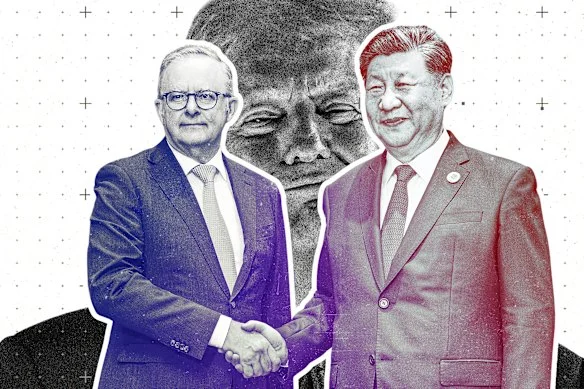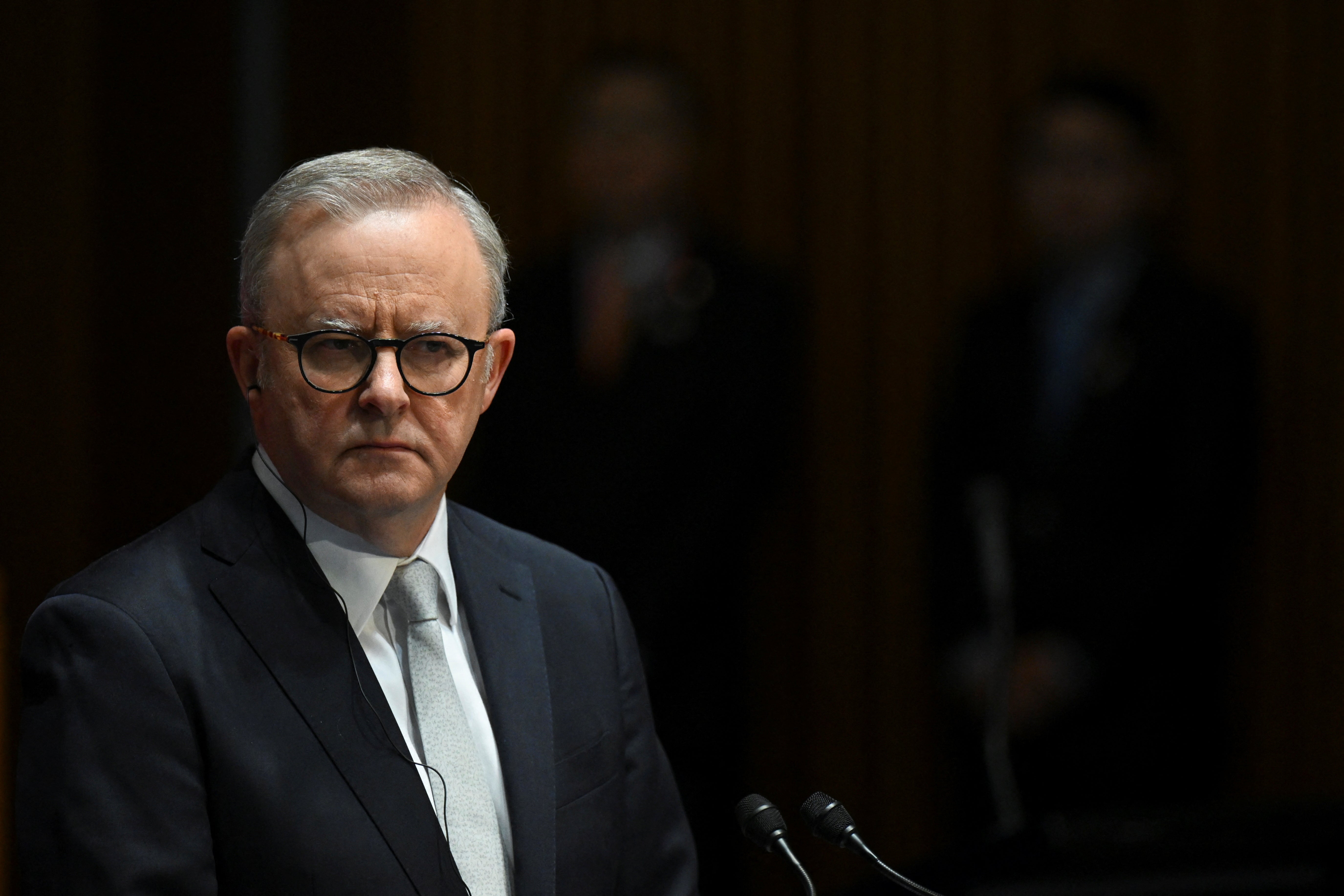
Australia Defies China’s Call To Unite Against Trump’s Tariffs, Chooses Strategic Independence
Australia has firmly rejected overtures from China to align in opposition to Donald Trump’s aggressive tariff escalation, instead doubling down on a diversified approach to protect its economic stability amid rising global tensions. This diplomatic standoff underscores Canberra’s delicate balancing act as it navigates the fallout from US protectionism targeting Beijing, its largest trading partner.
China’s ambassador to Australia, Xiao Qian, recently published opinion pieces urging solidarity: “The only way to stop the hegemonic and bullying behaviour of the US in harvesting the whole world is to strengthen solidarity and collaboration.” He invited Australia to “join hands” against what Beijing views as US economic aggression—namely Trump’s imposition of a staggering 125% tariff on Chinese goods, a move threatening ripples across the global supply chain.
Yet Australian Deputy Prime Minister Richard Marles swiftly dismissed the proposition: “I don’t think we’ll be holding China’s hand,” emphasizing an Australia-first approach centered on strategic autonomy. Instead of entangling itself in superpower rivalries, Marles outlined plans to diversify trade towards regional markets such as Indonesia, India, and key global partners like the UK and UAE. “It’s about pursuing Australia’s national interests, not making common calls with China,” he said bluntly.
Prime Minister Anthony Albanese echoed a nuanced stance: “Our trade relationship with China is important. Trade represents one in four Australian jobs.” He acknowledged risks but noted that “80% of global trade does not involve the United States,” hinting Australia aims to capitalize on broader commercial opportunities. The Treasury and Reserve Bank warn the “China channel” remains the main conduit through which Trump’s tariffs could hurt Australia, especially if Chinese demand falters under new economic strain.

Mr. Xiao warned unilateralism and protectionism threaten global recovery: “A weak compromise allows the US to sabotage the international order, dragging the world economy into a quagmire.” China has already retaliated with countermeasures and signaled further responses.
Canberra’s cool deflection reflects hard lessons from recent years. After the Morrison government called for an independent COVID-19 probe, China unleashed punishing sanctions, souring strategic trust—a fresh reminder that economic coercion cuts both ways. As one government insider summed up, “What China did back then was not justifiable, and neither are Trump’s moves now.” The goal: focus on variables Australia controls, avoiding entanglement with either power’s assertive politics.
Meanwhile, Australia’s leadership pursues pragmatic economic hedging: pushing hard to revive stalled EU free trade talks, seeking US tariff exemptions, and ramping domestic resilience. Treasurer Jim Chalmers said recently, “Our response is all about making our economy more resilient, our markets more diverse, and engaging with the world.”
Analysts say this measured response underpins both economic prudence and sovereignty. By declining Beijing’s invitation while reiterating trade openness—including with China—Australia signals commitment to rules-based commerce, free of great-power rivalries. But with global trade patterns under siege and election campaigns intensifying, Canberra’s balancing act remains fraught.
A key subplot—the Port of Darwin controversy—illustrates these crosscurrents. The long-term lease to a Chinese firm continues sparking security anxieties, even as China’s naval drills around Australia raise strategic questions amid the trade tempest.
Ultimately, whether Beijing’s pressure or Trump’s tariff gambits prevail will likely reshape Indo-Pacific dynamics. For now, Australia stands its ground: refusing to be anyone’s pawn, determined to chart an independent, diversified economic future despite the storm.
What do you think of Canberra’s refusal to “join hands” with Beijing? Will Australia’s strategy safeguard its economy or leave it vulnerable amid superpower clashes? Share your thoughts in the comments below.